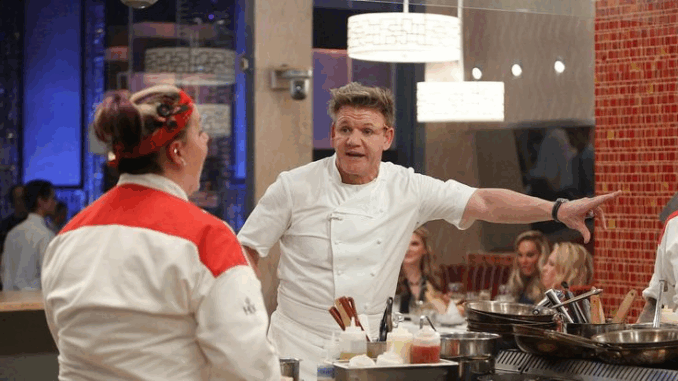
Gordon Ramsay is famous for pushing others to the edge—but few realize how close he once came to walking away from it all. Behind the polished productions and Michelin-starred branding, there was a moment in Ramsay’s career so dark, so personal, that it nearly destroyed everything he built.
It began quietly. No headlines, no official announcements. But those who worked closely with Ramsay during a particular season of MasterChef US noticed a shift. He wasn’t yelling with the same venom. His energy was off. Some chalked it up to burnout—but the truth was far heavier.
At the time, Ramsay was juggling more than ten active television shows across multiple countries, operating dozens of restaurants, and raising a growing family. That alone would be enough to break most people. But what truly pushed him to the brink was something even more damaging: the feeling that he had become a product—an angry caricature created for ratings, not respect.
Sources say Ramsay began to question his entire image. Was he really helping people, or just entertaining viewers who wanted to watch him explode? This existential crisis hit especially hard after an episode of Kitchen Nightmares was heavily edited—turning a vulnerable emotional moment with a struggling chef into a meme-worthy outburst. Ramsay reportedly hated it. He felt mocked, manipulated. “They’re not showing the real me anymore,” he allegedly told a close friend.
It didn’t help that around the same time, one of his US-based restaurants failed spectacularly. The reviews were brutal. Media outlets declared that Ramsay’s name no longer guaranteed excellence. And for a man who built an empire on perfection, the failure stung more than he admitted publicly.
But perhaps the breaking point came when one of his children asked him—innocently—why he was always so angry. That question, simple and pure, reportedly left Ramsay speechless. He realized he had spent so long being “Gordon Ramsay the TV chef” that he had neglected “Gordon Ramsay the dad.”
Privately, he considered stepping back. Quietly disappearing from television. Letting others take the spotlight. Some industry insiders even claim there were early drafts of farewell statements, ready to be published if he decided to end his contract with FOX.
Instead, something shifted.
Rather than quitting, Ramsay chose to fight—but this time, not with his temper. He renegotiated creative control over several of his shows. He toned down the explosive persona in some appearances and leaned more into mentorship, especially on MasterChef Junior. It wasn’t a total transformation, but it was intentional. A recalibration of the image that had once consumed him.
He also began prioritizing family in a way he hadn’t before. From cooking videos with his kids on social media to publicly supporting his wife through personal health challenges, Ramsay was reclaiming his identity—away from the shouting, the fire, and the endless demands of celebrity.
Today, he still carries the scars from that period. The smile is tighter. The interviews more measured. And while he remains a powerhouse in the culinary world, you can sense the line he walks—balancing the man he became with the man he wants to be.
Fans may never know how close they were to losing him from their screens. But behind every fiery scene, there’s a quieter truth: Gordon Ramsay almost burned out completely. And the fact that he didn’t walk away may be his greatest victory yet.